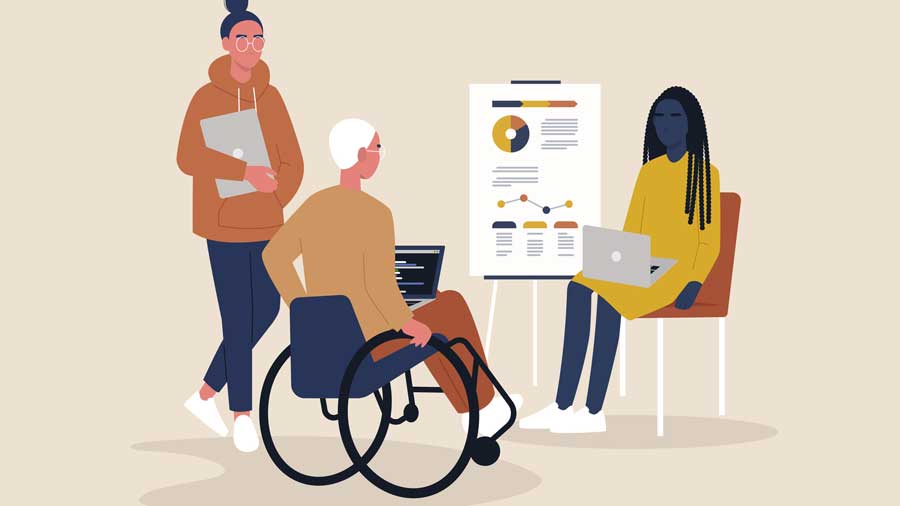Equality in the workplace
Creating equality in the workplace isn’t just about having a diverse board. It’s about embedding inclusivity in the decision-making process and allowing everyone to be their authentic selves

GOVERNANCE
Image: Istock

Peter Molyneux
Chair, Sussex Partnership NHS Foundation Trust, and chair, NHS Confederation Health and Care LGBTQ+ Leaders Network
Being able to be our authentic selves is so important for our mental health and wellbeing. Too often, though, identity is treated as a credential rather than as something we each have and which we each need to be seen.
So, if I am to be an inclusive leader, I must enable different perspectives to be heard and for people to feel they can participate and contribute to discussions. Of course, this isn’t easy to get right and needs constant attention.
Organisational impact
Organisations often behave in ways that do not have a good impact on people. Inequality and discrimination in society is imprinted by an organisation without realisation or recognition. At board level, it is important to have diversity of expertise and experience. However, the challenge is not only for the broader workforce to see itself reflected in the leadership, but also that decisions are made fairly, that we respect each other’s opinions and that there is fair treatment across the organisation.
Too often, we invite staff – particularly those from a BAME background – to call out any discrimination. But by doing that we are asking them to relive their experience which can be damaging for them and by our behaviour can make them feel injured rather than supported. We know from research that LGBTQ+ staff are less likely than other staff to feel that their voices are being heard – and this has been particularly true for trans staff of late.
“Too often, we invite staff – particularly those from a BAME background – to call out any discrimination. But by doing that we are asking them to relive their experience which can be damaging for them and by our behaviour can make them feel injured rather than supported.”

Clarity of purpose
A board needs to begin with clarity of purpose on what it is trying to achieve. It needs to ask the right questions on equal access to certain roles, gathering the right data and being willing to examine that data through an equity lens. Boards must be willing to change existing procedures to ensure people have access to development opportunities and that talent is recognised. When we look at our performance data we need to ask – are some people benefitting more than others? You can look at the average and think you are making progress, but you need to drill down into the data.
If we are going to create a sense of inclusion and belonging, some things are relatively straightforward, such as creating a diverse board. But it is much harder to create that inclusive culture throughout the organisation. Staff networks can help, but there needs to be clarity and co-production of purpose in why they are set up and they need to be connected to the decision-making groups. We might say we want staff to express diverse opinions. But is that the perception?
What I permit, I promote
We have to remind ourselves that this is core business. It has to be who we are – it is a way of being, not a project. For those in the boardroom it means creating the right narrative and not settling for the obvious answers. If staff see that we are not calling something out, they will notice. I need to recognise that what I permit, I promote. It is easy to forget that, in leadership, you also need to remain authentic, and that means checking back regularly on how much of yourself you are bringing to the conversation.
Post-Covid, a focus on mental health and wellbeing needs to run through all organisations. Mental and emotional wellbeing is driven by decisions we all make, and that is a huge responsibility.
The prize is the wellbeing of the whole community. At the end of the day, we are all people organisations. Creating a sense of inclusion and belonging and allowing people to be their authentic selves is a key part of this. An employer such as a care and support provider, a housing association or an NHS Trust can make a big difference to that.


